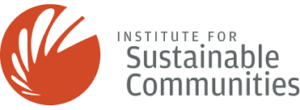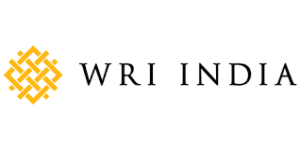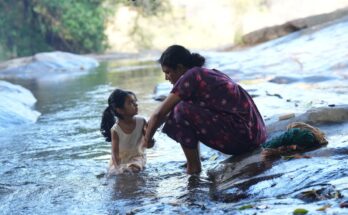World MSME Day: WRI India and Institute for Sustainable Communities organize a conference on Clean Energy
World MSME Day: WRI India and Institute for Sustainable Communities organize a conference on Clean Energy and Just Transitions for India’s MSME sector
Chennai, 27th June, 2022: World Resources Institute India (WRII) in partnership with the Institute for Sustaina ble Communities (ISC) held a conference in New Delhi today on Clean Energy and Just Transitions for SMEs in India to mark the World Micro, Small and Medium Enterprises (MSME) Day, observed globally to build public awaren ess of this sector’s vital contribution to the economy and to sustainable development.
The day-long conference had panel discussions on ways to access technology and finance that could accelerate the transition to cleaner energy solutions for small businesses, and on how this transition could attempt to be socially just, while creating new avenues of employment and income.
Delivering the keynote address Abhay Bakre, Director General, Bureau of Energy Efficiency praised India’s MS ME sector for being responsive, flexible, highly skilled, and requiring the least investm ent to transition to clean er forms of energy. He said, “For us, the MSME sector is our top priority, and we believe whatever we do for the SME sector, will shape India’s transition to clean energy.”
Moderating the technology panel, Vivek Adhia, India Country Director, ISC said that it is clear avenues of fina nce and technology exist for India’s small businesses, but they are not malleable enough to accommodate the unique cluster-specific requirements of the MSME sector.
This conference also marked the culmination of the week-long launch of the Innovative Clean Energy Technology Platform (I-CET) by WRI India and ISC in partnership with the Government of India’s Technology Information Ass essment Forecasting Council (TIFAC). This platform aims to create an enabling ecosystem to promote clean tec hnology innovations in India’s small businesses sector. I-CET would focus on small businesses’ cluster specific technological challenges, going beyond national, or state level solutions.
To kick-off I-CET, the platform organized Clean Energy Technology Roadshows in four locations across the country – each attempting to focus on solutions being attempted by entrepreneurs and innovators for specific clusters. Beginning with Tirupur in Tamil Nadu, where the focus was on creating solutions for the city’s sprawling textile clusters; and in Kochi, Kerala, where solutions were showcased for the city’s land-starved food processing and seafood clusters. The other two tech roadshows were in Ahmedabad, Gujarat and Karnal, Haryana. In both these locations innovators showcased solutions for chemicals and dye clusters, and for wood and its by-products.
Taylormade Renewables Ltd (TRL) was the winner of I-CET’s technology roadshow. TRL showcased its technol ogy TRL RAIN, which attempts to provide zero effluent discharge manufacturing facilities with drastically redu ced energy use. Their innovation will help reduce waste and greenhouse gases across sectors – food, chemical, textiles and more. TRL’s Chairman and Managing Director Dharmendra Gor accepted the award on the comp any’s behalf.
Going forward, I-CET will support, promote, and “de-risk” the part icipants at the clean technology challenge by connecting them wi th potential investors, customers, and partners.
Participants at the conference included, Jarnail Singh, Deputy Director, India Office, MacArthur Foundation, and Dr. OP Agarwal, CEO, WRI India.
In his welcome address Dr. Agarwal said, “India cannot achieve net-zero emissions by 2070 without addressing the energy needs and clean energy challenges of the country’s 63 million strong small businesses community. So lutions for this sector would also make them globally competitive, as ever more multinational corporations look to decarbonizing their supply chains.” Highlighting the need for a just transition in this sector, he added, “While moving to cleaner energy and low carbon operations will enhance the sector’s competitiveness and profit mar gins, adequate support to skilling, reskilling and financing are critical to ensure that the benefits of this transi tion are equitable, and no one is left behind.”
About ISC
At the Institute for Sustainable Communities, we give passionate, committed people the tools and skills they ne ed to inspire active citizenship, protect the environment, and take on climate change.
About WRI India
WRI India is a research organization that turns big ideas into action at the nexus of environment, economic opportunity, and human well-being.




